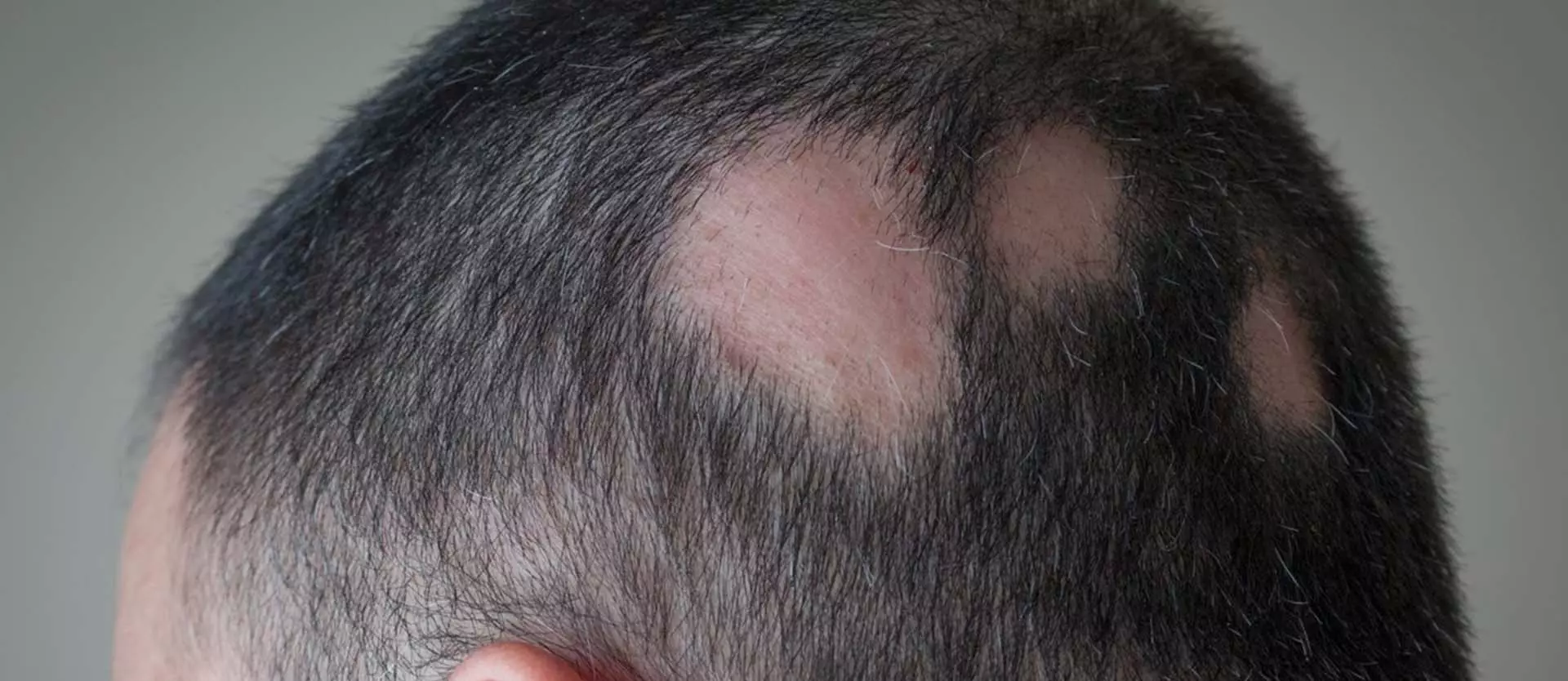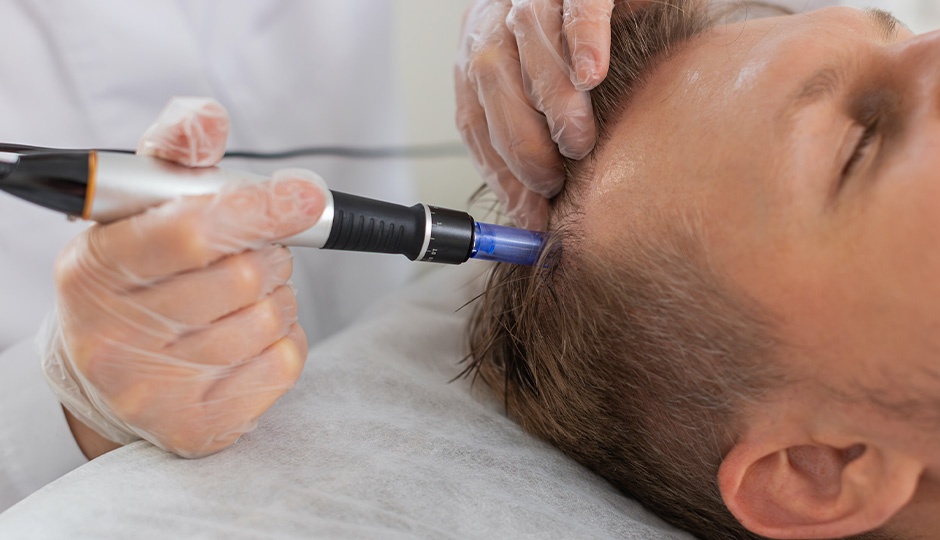Alopecia areata is a common, auto immune hair loss disorder many men and women face. This condition occurs when a person has small patches of hair loss – sometimes that are very noticeable. Typically, the hair falls out in that one area. However, it may happen in several areas. This condition is a type of auto immune disease, which means a person’s immune system attacks the hair follicles and skin improperly, leading to the hair loss. Most often, this condition is brought on by genetics, but other factors play a role in it as well.
What Are Symptoms of Alopecia Areata?
The symptoms of this condition are rather straightforward. They include a sudden loss of hair, often focused in a specific area of the head. Some people may develop small patches that are rounded of hair loss. In some people, it can lead to alopecia Universalis, which means that they experience total hair loss. This is less common, though. Most will experience hair loss from this disorder on their head. However, it can also include the loss of hair in other areas as well including the face, eyelashes, and eyebrows. Some people may have this condition develop slowly, which typically makes it very hard to notice.
What Can Be Done to Treat Alopecia Areata?
There is no cure for alopecia areata. However, many people will see improvement over time. It is common for hair loss to occur, and then, within 3 to 4 months, the hair begins to grow back. That is because this condition simply stops hair from growing for a period of time, in most cases. However, there are some situations where it can lead to permanent hair loss, and that may mean that it is harder to cover up.
There are some treatment options that may be available. The first step is to visit a doctor to determine what underlying cause of the hair loss, if possible. If there is a cause, correcting it may help. Unfortunately for many people, this is hard to do because genetics, stress, and medical illness may be common reasons for a person to develop the condition. However, if there is a known cause and it can be corrected, such as a diet deficiency, then that may help to encourage the hair to grow back quickly.
There are topical agents that may help in some situations. Your doctor may recommend the use of minoxidil, for example. This is a type of over the counter treatment that is applied twice a day to the area. Anthralin is another type of treatment. It works by irritating the skin to help encourage growth. Corticosteroids are often used by dermatologists as treatment. These are lotions or foams that are applied to the area. They are more likely to be effective in those who have hair loss resulting from inflammation. These medications work to treat that inflammation providing relief to a person’s skin and enabling the hair to regrow.
There are also other treatment options available to some people. For example, there are some medications, such as cortisone tablets, that may be helpful, especially for those who have more extensive alopecia. Some people may also take an oral immunosuppressant which works to stop the body’s improper immune reaction. In addition to this, there are steroid injections and other types of injectable treatments that may help to bring the immune system back under better control.
Light therapy is a natural treatment that may help some people. It may help to reduce the need for other treatments. There is some evidence of natural treatments helping. This may include the use of microneedling, probiotics, or acupuncture. Some people also apply essential oils to the area impacted, such as lavender, peppermint, rosemary, and tea tree. You may also notice an improvement by moving to a diet that is anti inflammatory. This may help to correct the improper function of the immune system as well.
What is most important is choosing a treatment plan that is right for you. If you think you have alopecia areata, be sure to turn to your doctor to have a formal diagnosis. Often, a dermatologist is the best person to help you with this first step. If you are looking for hair loss solutions, reach out to Unique Hair Concepts for a FREE consultation.






